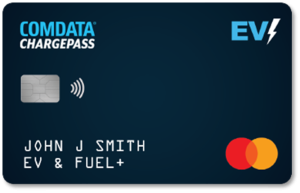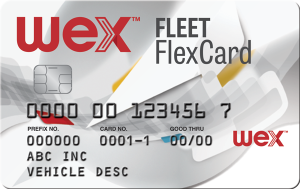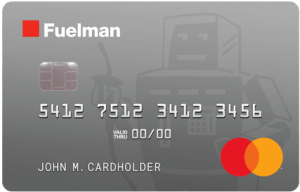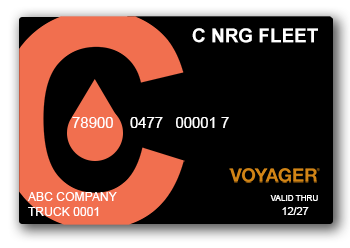According to a forecast by Gartner Inc. electric vehicle fleets are projected to grow globally from 64 million units to 85 million by the end of 2025. It is no surprise that many fleets are making the switch to electric for its sustainability and savings. As more and more fleets make that transition, fleet managers will need to look for specialized fuel cards that can easily track and manage EVs charging.
When selecting a fuel or charge card, managers should consider factors such as network coverage, reporting capabilities, card fees, and card controls. In this article we will explore some of the top fleet EV cards and what they offer.
Comdata Chargepass

Network & Acceptance
Comdata Chargepass is accepted at 97% of EV charging stations nationwide and anywhere Mastercard is accepted.
Controls
With the Chargepass card you are given access to the same controls as Comdata’s other fuel cards. Below is a list of the card controls they offer:
- Spending Limits – Dollar amount per transaction & number of transactions.
- Purchase Restrictions – Restrict purchases to only EV charging or fuel and maintenance expenses only.
- Time-Based Controls – Transactions can be restricted to specific time frames.
- Location Based Controls – Restrict card usage to certain locations and charging networks.
Reporting
Since the card is connected through car data, it can track and document charging events anywhere, even at home, so that employees can be reimbursed. It captures details such as location, time, cost, and driver identification. You can also easily manage both electric and non-electric vehicles from one dashboard, as well as receive one invoice for both types.
Pros
- Broad card acceptance
- Detailed tracking and reporting
Cons
- Comdata charges $8 per card, as well as a $50 account setup fee, which can quickly add up for larger fleets.
- Since this is a Mastercard, it is not part of a closed fuel or charging network, making it more susceptible to fraud compared to closed-loop cards.
If you are interested in learning more about this card, go here.
Wex EV Card

Network & Acceptance
Wex partners with ChargePoint and their roaming partners like: AmpUp, Blink, EVConnect, EVgo, and Flo, providing access to about 130,000 public chargers worldwide.
Controls
The Wex EV card gives you access to the same controls as Wex’s other fuel cards:
- Spending Limits – Dollar amount per transaction & daily, weekly, or monthly spending caps
- Purchase Restrictions – Restrict purchases to only EV charging or fuel and maintenance expenses only.
- Time-Based Controls – Transactions can be restricted to specific time frames.
- Location Based Controls – Restrict card usage to certain locations and charging networks.
- Prompt for PIN – Assign and require PIN codes so that drivers have to enter them before they can charge.
Reporting
Wex has an advanced reporting system that provides details on charging such as; Driver ID, odometer readings, location, time, and cost of the charging session. For mixed fleets billing can be consolidated to one invoice that combines EV charges and fuel purchases.
Pros
- Large dedicated charging network.
- Comprehensive card controls to prevent fraud and misuse.
Cons
Multiple card fees- Including per-card fees, account fees, and transaction fees, which can become costly despite available discounts.
If you are interested in learning more about this card, go here.
Fuelman EV Fleet Card

Network & Acceptance
Fuelman’s EV card can be used anywhere Mastercard is accepted.
Controls
Below is a list of the card controls they offer:
- Spending Limits – Dollar amount per transaction & daily, weekly, or monthly spending caps
- Purchase Restrictions – Restrict purchases to only EV charging or fuel and maintenance expenses only.
- Time-Based Controls – Transactions can be restricted to specific time frames.
- Location Based Controls – Restrict card usage to certain charging networks.
- Driver Profiles – Can require driver IDs for transactions.
Reporting
Fuelman has charging event tracking which records every charging event and what type of charger is being used, time of charging, cost of charging, and the location. They also can help fleets with sustainability by offering a carbon offset program that tracks and manages a fleet’s sustainability goals.
Pros
- Broad card acceptance.
- Stronger card controls to help prevent fraud or misuse
Cons
- Like ComData, Fuelman’s EV card is more susceptible to fraud as it functions like a Mastercard.
- Fuelman charges per-card fees and a monthly membership fee.
If you are interested in learning more about this card, go here.
Voyager Fleet Card

Voyager’s fleet card offers a seamless integration with ChargePoint, making it a strong choice for EV fleets.
Network & Acceptance
Voyager partnered with Chargepoint which is the largest network in the nation with 48,000 charging stations.
Controls
Since ChargePoint links to Voyager fleet cards rather than being a separate EV card, you have access to all the controls Voyager offers:
- Spending Limits – Dollar amount per transaction & daily, weekly, or monthly spending caps
- Transaction Limits – Can limit the amount of transaction per day
- Purchase Restrictions – Restrict purchases to only EV charging or fuel and maintenance expenses only.
- Time-Based Controls – Transactions can be restricted to specific time frames.
- Location Based Controls – Restrict card usage to certain charging networks.
- Driver Profiles – Can require driver IDs for transactions.
Reporting
Charging sessions are initiated using a ChargePoint key fob rather than swiping a card directly. The system captures various transaction details, including driver ID, odometer readings, location, and cost. Billing can also be consolidated to show both traditional fuel purchases and EV charging expenses.
Pros
- Large dedicated charging network.
- No card fees.
- Comprehensive card controls to prevent fraud and misuse.
Cons
- Since this is a key fob tied to a Voyager account rather than a separate card, drivers must manage both a card and a fob.
- If a charging session is free, it will not be recorded.
If you are interested in learning more about this card, go here.
